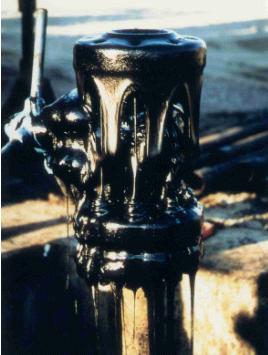 Here’s a rich idea reported by the New York Times: Pay oil producers for not producing oil. That’s right. Saudi Arabia wants “rich nations” to pay oil producers to help wean themselves from their dependency on oil. That is- oil exports. It’s just like paying farmers not to plant, right? Wrong. In this case, oil producers still sell what the market demands, it’s just that since the market will be demanding less, OPEC and the like will get less. According to the article, the Saudis have in the past gummed up the works on climate change protocols because of other nations’ refusal to accede to this sort of extortion.
Here’s a rich idea reported by the New York Times: Pay oil producers for not producing oil. That’s right. Saudi Arabia wants “rich nations” to pay oil producers to help wean themselves from their dependency on oil. That is- oil exports. It’s just like paying farmers not to plant, right? Wrong. In this case, oil producers still sell what the market demands, it’s just that since the market will be demanding less, OPEC and the like will get less. According to the article, the Saudis have in the past gummed up the works on climate change protocols because of other nations’ refusal to accede to this sort of extortion.
Do the Saudis have a real problem? Yes. They and other large oil producers like Libya lack a sufficiently diversified economy, such that when oil prices dip, everyone suffers. This is known as Dutch Disease, and oil exports are right to be worried about it. Dutch disease happens because the demand of oil alone drives up national currencies, making all other industries in that country uncompetitive by price.
So here are a few questions:
- Can oil producers wean themselves off of oil without economic assistance? After all, they’re taking in all of this money. Can’t they use some of it to develop other industries? It seems Dubai has been somewhat successful at this.
- Would economic assistance actually help? If consuming countries gave them more money to compensate for losses of oil revenue, would producers just become dependent on the subsidy?
- Isn’t there a broader picture here surrounding to the West’s relationship to the Middle East? Doesn’t good will count for anything? And don’t we need some of that good will in that part of the world?
Dutch Disease requires complex solutions. Simply providing a subsidy won’t do the job. In fact, providing a subsidy could in fact prop up the national currency and compound problems.
And then there’s the fact that most of us feel as though we’ve been held over a barrel by some of the countries in question, and would like to have done with entanglements in the middle east. Oil or no, however, the people in those countries are not going away. They and we need an equitable way to live together in the future.